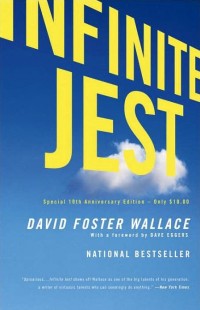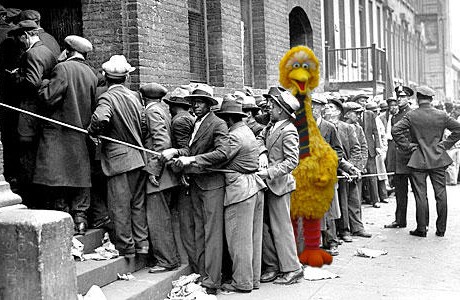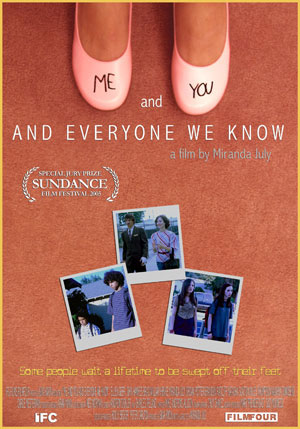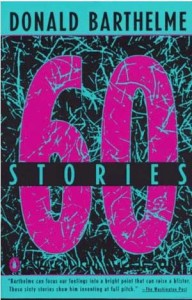Some Unscientific Thoughts on Depression
 Depression is a different animal entirely. For the depressed person, the bulk of precedents—be they figures one admires that also dealt with depression, or works that seem to encapsulate the modern understanding of this phenomenon—have occurred in the last hundred years or so; and although it’s not difficult to develop a strong empathy for depressed figures like Lincoln, Nietzsche, or Albrecht Dürer, the lines of history tend to blur and complicate personal afflictions to such an extent that for every book that might exist exploring the various miserable icons we’ve had, there are hundreds documenting their triumphs and love affairs to bury these desired texts neath the fantastical self help mega library.
Depression is a different animal entirely. For the depressed person, the bulk of precedents—be they figures one admires that also dealt with depression, or works that seem to encapsulate the modern understanding of this phenomenon—have occurred in the last hundred years or so; and although it’s not difficult to develop a strong empathy for depressed figures like Lincoln, Nietzsche, or Albrecht Dürer, the lines of history tend to blur and complicate personal afflictions to such an extent that for every book that might exist exploring the various miserable icons we’ve had, there are hundreds documenting their triumphs and love affairs to bury these desired texts neath the fantastical self help mega library.
TWO FEASIBLE PRECEDENTS

The first, and perhaps most obvious best friend to the depressed person post-1995 who happens to enjoy literature, is probably David Foster Wallace. Before him, the aforesaid lines of history tend to make the case of Sylvia Plath or Van Gogh fairly cut and dry, to the extent that Plath’s life might be seen as her sitting down at a desk and writing some beautiful works, then immediately falling into such a vat of misery that she stuck her head in an oven, the same model largely applies for Van Gogh except it’s paint, with a bit of ear-severing—though not as drastic as history has made it out to be—and the man shooting himself in the heart twice before walking back into the city undead, only to die two days later. With Wallace, however, we have an accomplished intellect who came to suffer severely from depression after the road had begun to be mapped out for him. Already well into his college career—and of course you can argue that his depressive tendency existed before this, but as I understand it this was when Wallace really came to blows with the malady—he seemed destined for literary accomplishment before being thrust into the void of chemical dissonance and thus forced to consider contemporary (this is important) means of salving the indiscernible wound. And, luckily for us, he managed to write some of the most fascinating fiction and non- about the subject to happen in years. This is a curious thing to me. For all the talk I’ve heard of Wallace’s mastery over the contemporary form, or something, I seldom hear discussed his great command over the subject of fucking misery, modern boredom, or complete and total suicidal ideation. I guess it’s hinted at much of the time, but as far as I’m concerned the guy is close to our American Foucault as it relates to the depressive animal, with “Good Old Neon” or the Kate Gompert portions of Infinite Jest—perhaps my favorite in the whole book, weirdly enough—or Wallace’s nonfiction and more—the subject tends to permeate everything as far as I’ve gathered—what we have in Wallace is a guide for the solving of the plight described by Scott Fitzgerald years prior to this, that “the natural state of the sentient adult is a qualified unhappiness.” For more on this I highly recommend Postitbreakup’s fairly recent post for Dennis Cooper’s blog, “David Foster Wallace’s triptych on depression.” READ MORE >
25 Points: Infinite Jest
 Infinite Jest
Infinite Jest
by David Foster Wallace
Little, Brown, 1996
1104 pages / $17.99 buy from Powell’s
1. David Foster Wallace was born in a small town in western Ohio, best known for its jar factory. This would figure in the book, Infinite Jest.
2. The first three pages of Infinite Jest are like a key to the novel. Without them you’ll probably be lost.
3. A palm tree is a recurring motif in the book, which seems to represent an opening and closing of the author’s heart.
4. DFW first wrote the manuscript to Infinite Jest when he was 22. He put it in a box that he carried from apartment to apartment as he studied at various schools or followed various women about the country.
5. By the third chapter, with the introduction of the character of the cabbie, you’ll probably feel confused and even ready to give up. Most people do right here.
6. Infinite Jest will seem like the driest book you’ve ever read. DFW needed to wring out the wet in literature.
7. A capable reader will read 22 pages at a time. Don’t worry if you aren’t capable. Most of us won’t be.
8. DFW refound the manuscript of Infinite Jest at age 33, when he was moving out of the house near Tulsa. He didn’t think much of it, apparently.
9. In a survey of college students, most readers found themselves skipping an average of 2 pages every 10.
10. At one point, the cabbie finds a note from his wife. This seems to represent a fracturing of the potency of language. READ MORE >
December 20th, 2012 / 9:09 am
GOOD OLD NEON
What we talk about when we talk about the New Sincerity, part 2

"Hi, How Are You?" cover art by Daniel Johnston (1983); "financially desperate tree doing a 'quadruple kickflip' off a cliff into a 5000+ foot gorge to retain its nike, fritos, and redbull sponsorships " by Tao Lin (2010)
It made me very happy to read the various responses to Part 1, posted last Monday. Today I want to continue this brief digression into asking what, if anything, the New Sincerity was, as well as what, if anything, it currently is. (Next Monday I’ll return to reading Viktor Shklovsky’s Theory of Prose and applying it to contemporary writing.)
Last time I talked about 2005–8, but what was the New Sincerity before Massey/Robinson/Mister? (And does that matter?) Others have pointed out that something much like the movement can be traced back to David Foster Wallace’s 1993 Review of Contemporary Fiction essay “E Unibus Pluram: Television and U.S. Fiction” (here’s a PDF copy). I can recall conversations, 2000–3, with classmates at ISU (where DFW taught and a number of us worked for RCF/Dalkey) about “the death of irony” and “the death of Postmodernism” and a possible “return to sincerity.” Today, even the Wikipedia article on the NS also makes that connection:
Does the Pulitzer suck, and if so, whom?

Winners of the 2012 Pulitzer Prize will be announced today at 3pm. Any predictions? The Pulitzer Prize for Fiction has been awarded to no one, apparently. Nominees were Denis Johnson’s Train Dreams, Karen Russell’s Swamplandia!, and David Foster Wallace’s The Pale King. I’m curious what you think of the prize (Fiction category or in general). Is it
a) a highly prestigious stamp of approval that guarantees an enjoyable and edifying read
b) a mainstream award given to a conventional, palatable work (though the work may be formally inventive in superficial ways), leading to increased sales, certainly among readers of “serious literary fiction” but mostly among a segment of people who want to acquire cultural capital without too much effort
OR are you an enlightened in-betweener? If you tell me I will put it in a pie chart. I remember “at one point in my life” having a lot of fun making lists in a .txt file of Pulitzer winners and a future reading order that I would never end up following. I also remember (much later) finding Finding a Form by William Gass in the library, [I don’t mean this to sound like a conversion story. Beloved was pretty phenomenal. Lonesome Dove features a river full of snakes.] and reading this on the first essay’s first page:
from “Pulitzer: The People’s Prize” by William Gass
Q: How much distance is there between David Foster Wallace–the narrator–and yourself?
DFW: I don’t understand the question?
– Full interview from 1998 at Slate
Visual representations of Infinite Jest objects (movie posters, tennis tourny flyers, etc.). The Quarterly Conversation dedicates a symposium to David Foster Wallace; Who Was David Foster Wallace? And Unbound is a Kickstarter for books. Oh wait: the writer of 20% of all Simpsons episodes has self-published a bunch of novels.



 In college I went through a stage of searching for and printing off as many David Foster Wallace interviews as I could find. I remember printing of the
In college I went through a stage of searching for and printing off as many David Foster Wallace interviews as I could find. I remember printing of the